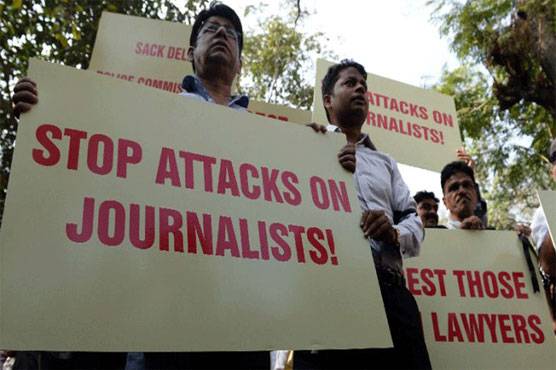Paris (Reuters): A press freedom group claimed on Monday that over 57 journalists have been killed around the globe during 2016 while doing their job.
Reporters Without Borders, the press freedom group said that 19 were killed in Syria alone, followed by 10 in Afghanistan, nine in Mexico and five in Iraq.
Although it was fewer than the 67 killed in 2015, the group gave a reason in decline of the ration that many journalists have fled countries that became too dangerous, especially Syria, Iraq, Libya, Yemen, Afghanistan and Burundi.
It also stated that the withdrawal of reporters from these conflict-ridden countries had created news and information black holes where impunity reigns.
Eight media workers and 9 bloggers have also been killed this year.
The group said, the fall in deaths was also the result of the "terror" imposed by what it called "press freedom predators" who close media outlets arbitrarily and gag journalists.
The group said in its annual report, this led to journalists self-censoring to avoid being murdered in countries such as Mexico.
In Afghanistan, all of the 10 journalists killed were intentionally targeted because of their profession.
The Taliban claimed responsibility when 7 journalists including 3 women, were killed in a suicide attack in January on a private TV channel’s minibus.
Yemen, where more than 7,000 people have been killed since 2015 in a war pitting Saudi-backed regime forces against Huthi rebels, was another a black spot for journalists with five killed.
RSF secretary-general Christophe Deloire said, "The violence against journalists is more and more deliberate. They are clearly being targeted and murdered because they are journalists.”
The alarming situation reflected that the glaring failure of the international initiatives aimed at protecting them, and is a death warrant for independent reporting in those areas where all possible means are used to impose censorship and propaganda, especially by fundamentalist groups in the Middle East.
The group called for incoming UN Secretary-General Antonio Guterres to appoint a special representative for the protection of journalists.


